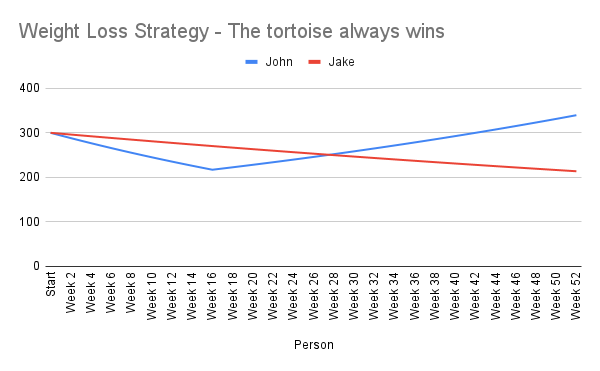My dietary advice is offered to all clients at no added cost.
Calories In. Calories Out. Diet has devolved into one of the most confusing, verbose & ambiguous subjects. The basics of losing weight via diet are almost stupidly simple. They have also been known for the better part of the last century. I have had clients of substantial intellectual ability simply get lost in the wash of the deluge of misinformation & propaganda shoved down their throats (no pun intended) by the diet-for-profit industry.
Diet has devolved into one of the most confusing, verbose & ambiguous subjects. The basics of losing weight via diet are almost stupidly simple. They have also been known for the better part of the last century. I have had clients of substantial intellectual ability simply get lost in the wash of the deluge of misinformation & propaganda shoved down their throats (no pun intended) by the diet-for-profit industry.
“I have no special talent. I am only passionately curious.”
Albert Einstein
It all comes down to energy. We spend energy (even when we are sleeping) & we consume energy (calories). When consumed energy exceeds spent energy excess energy is stored as fat & you gain weight. When spent energy exceeds consumed energy we lose fat & (possibly) muscle tissue & you lose weight.
When you make sure your calorie deficit is within certain limits & you exercise your muscles you preferentially burn fat & not muscle tissue. Weight loss should never consistently exceed 1% of bodyweight. This is because if you lose weight too fast you are losing more muscle than fat which due to muscles ability to burn calories at 3-4 times the rate fat does means you are creating a less efficient calorie burning machine not a more efficient one. Rebounding is almost inevitable when weight is lost too fast.
Let me give you an example. John & Jake are identical twins who both weigh 300lbs (21 stone & 6lbs/136.1kg). Each starts with a bodyfat percentage of 45%. That is 135lbs of fat & 165lbs of lean tissue (muscle but also organs, bones, tendons and ligaments). They each go on a different diet. John’s diet sees him lose 2% of bodyweight per week for 16 weeks. Jake’s diet sees him lose 0.65% of bodyweight per week for those same 16 weeks. After 16 weeks John now weighs 217lbs (15 stone & 7lbs) & Jake now weighs 270lbs (19 stone & 4lbs). There is a clear winner emerging, note emerging, but its not the one you’d think it is. Firstly John’s loose skin issue is far more troubling and acute than Jake’s which is barely noticeable owing to his more gradual weight loss. But more to the point, if we put both men under a DEXA scan before and after these 16 weeks we see that of the 83lbs of weight lost by John fully 60lbs was lean tissue & only 23lbs was fat. Jake on the other hand lost just 10lbs of lean tissue but 20lbs of fat by adopting a more gradual approach to dieting.
This leaves John with 112lbs of fat & 105lbs of lean tissue. His bodyfat percentage has gone up not down. Jake is now 115lbs of fat & 155lbs of lean tissue. John now has a major disadvantage because on average, muscle tissue will burn 7-10 (average 8.5) calories daily per lb. Fat burns 2-3 (average 2.5) calories daily per lb. He’s down 50lbs of lean tissue half of which (for a man) [40% of which for a woman] can be expected to be skeletal muscle. Thus he has 25lbs less muscle than his twin brother & is burning (112*2.5)+(42*8.5)=637 calories per day at rest vs. Jake who is burning (115*2.5)+(62*8.5)=814.5 calories per day at rest. That’s a self-inflicted disadvantage of 177.5 calories which is roughly the calories in a bag of Maltesers – every single day.
Because John’s body is smarter than he, you or I are it goes into crisis mode after 16 weeks and his appetite surges. He starts to eat more and worse food than ever. Jake’s body is happy with its gradual decline in calories so it doesn’t rebound. He simply ticks along losing an average of 0.65% of bodyweight per week. His skin is also 90% less saggy than his twins brothers by this point. This is what the rest of the year brings.

Appetite for Destruction
The issue with severe calorie restriction is it eventually sends your body into crisis mode and your appetite spirals out of control in response. If you weigh 300lbs (and are male, in your mid 50; are say 5 foot 10 & live a sedentary lifestyle [don’t move much]) you have to consume around 2,650 calories per day just to maintain your current weight. There is a lot of happy middle ground between starvation & 2,650 calories per day where sustainable weight loss and management can occur. Infact anything below 2,650 calories per day on average, consistently, & you’re losing weight.